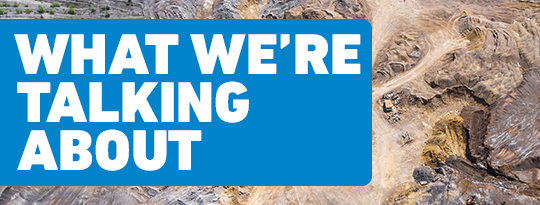

| In the United States, do you need to provide more information to open a library card or establish a company? It’s time to make corporate ownership more difficult than book borrowing. Together, 12 B Team Leaders and CEOs are urging members of the US Congress to support crucial legislation that will curb the use of anonymous companies and help the country keep pace with the European Union and others. With investments in clean energy growing across Africa, are these solutions considering the gendered impacts of climate change? This month, we joined government, civil society, finance and clean energy leaders at the annual Ibrahim Governance Weekend to discuss what’s needed for a just transition across the continent—women’s leadership. Monica Maduekwe, Program Officer at ECOWAS, and Allison Robertshaw, Senior Policy Advisor, Climate Change at The Elders, continue the conversation here. From Davos to digitalisation, 2019’s been a year for talk on tax. But what will these calls for reform and greater cohesion lead to? Our Governance & Transparency Director, Robin Hodess, and Cause Strategist, Ewan Livingston, examine what this year’s developments mean for the global tax system and for businesses looking to act on responsible tax. In a world where current stakeholders—and the next generation—are holding companies to account, how can we balance transparency and the right to privacy? Two new developments in open contracting and beneficial ownership are demonstrating why the transparency agenda is not in opposition with right to privacy and can be the new norm for corporates. |

| “By neglecting projected impacts, the current policy scenario very much looks like an enchanted mirror that is afraid of looking reality in the eye.” After the release of its World Energy Outlook, 60 business leaders, scientists and investors, including B Team Leaders Oliver Bäte, Sharan Burrow and Christiana Figueres, are calling on the International Energy Agency to develop new models that reflect the scale and speed the energy transformation needs. “We must urgently push back against the corrosive global discourse that has perpetuated a distorted and harmful picture that betrays the reality.” For global economic and social progress, it’s time to change the story around migration. B Team Leader and Founder and Chair of the Mo Ibrahim Foundation, Mo Ibrahim shares how. “As markets shift, so must Africa.” We know that bold climate action could deliver $26tn in economic benefits globally by 2030. B Team Leader and former Finance Minister of Nigeria, Dr. Ngozi Okonjo-Iweala, shares how Africa can—and why it should—lead the way. “Courage is not the absence of fear. Courage is feeling fear and doing it anyway.” Reflecting on remarks from our CEO, Halla Tómasdóttir, our Co-Founder and Virgin Group Founder, Sir Richard Branson, shares why her story reminds him that we will never take the action the challenges facing our world call for if we wait until we are confident. |

| In 2016, KnowTheChain benchmarked 60 companies in three high-risk sectors on their efforts to address forced labour in their supply chains. What’s changed over the past three years? Three Sectors, Three Years Later: Progress and Gaps in the Fight Against Forced Labor evaluates how far we’ve come—and still have to go—on putting an end to forced labour. Ahead of the Future of Europe Summit, what are European businesses, investors and industry networks expecting from EU leaders? More than 50 signatories—representing more than 1.5 million employees from across Europe—are urging EU heads of state to signal a new economic direction toward net-zero by 2050. The call for corporate transparency on workplace practices like diversity and inclusion, gender pay equity, paid time off and parental leave has grown louder and louder. Are companies responding? JUST Capital’s The Win-Win of JUST Jobs analyses how companies are disclosing and finds those leading the way are outperforming their peers. While we know climate change disproportionately affects those who have contributed the least to it, but just how much has it heightened these inequalities? A new study finds that the gap in per capita income in the richest and poorest countries is 25 percentage points larger than it would have otherwise—and will only get worse without strong, ambitious climate action. |

| May 20-21, Paris: OECD Annual Forum May 28-31, Lisbon: European Climate Change Adaptation Conference May 29-31, Ottawa: Open Government Partnership Summit June 11-14, Vancouver: Consumer Goods Forum Global Summit June 28-29, Bangkok: Social Business Day June 28-29, Osaka: G20 Summit |
